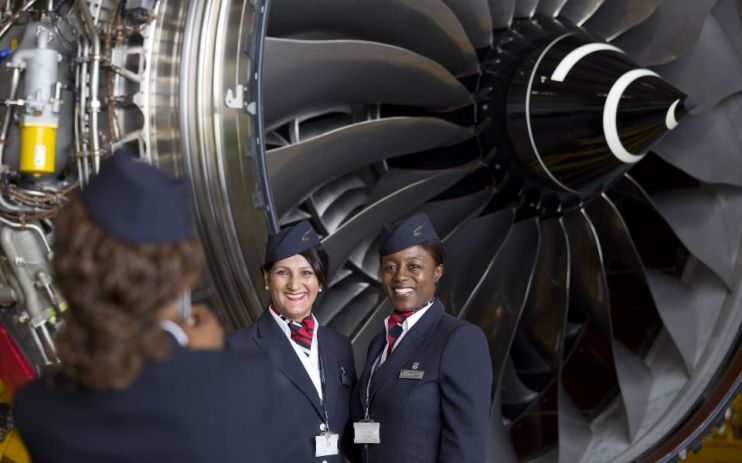Rolls-Royce turbulence finally nearing an end

On the the face of it, aircraft engine manufacturer Rolls-Royce looks to be stuck on the runway. Shares fell 2.5 per cent yesterday as it reported £2.9bn total losses in 2018. These were largely down to long-running mechanical problems which have grounded one of British Airways’ new Boeing 787 Dreamliner jets at Heathrow airport for nearly a year.
Virgin Atlantic, Air New Zealand, Thai Airways and Latam planes have also been kept out of the sky because of the issue with firm’s Trent 1000 engine model, which ultimately cost the manufacturer £790m last year. It is a huge reputation hit for the blue-chip engineer and has cost it at least £200m more in customer disruption costs than first thought.
To compound the setback, Airbus’ decision to cull its A380 super-jumbo jet has taken a £186m chunk out of the engineer’s finances. The kicker? Rolls-Royce also admitted it had dropped out of bidding to supply engines for Boeing’s new midsize planes because it was “unable to commit to the proposed timetable” – presumably due to its pre-occupation with fixing the Trent 1000 debacle.
But there are glimmers of light at the end of the tunnel. Underlying profits more than doubled to £616m last year, and the firm has converted £305m net debt in 2017 to a £611m cash position. Sandy Morris, analyst at Jefferies, thinks there is good reason to believe the end may be in sight for the Trent 1000 headache too, with some redesigned components now available, and others in the pipeline. Analyst consensus estimates have the civil aerospace unit dragging itself back into profit by 2020, if not sooner.
Moreover, chief executive Warren East inherited a hazardous cocktail of multibillion-pound annual losses and 20 year’s worth of bribery claims when he took over in 2015. But the Serious Fraud Office’s (SFO) probe wound up last week, finally setting the company free from a damaging period for its reputation. Perhaps even more crucial in the long-term is the fact East steered the firm through a swathe of job cuts last year, which he claims is driving “the crucial behavioural changes needed to sustain our momentum”.
The coming year may not be easy to navigate, even for a firm of Rolls-Royce’s resilience. Manufacturers continue tearing their hair out over Brexit, with their complex pan-European supply chains little more than sitting ducks in a no-deal scenario but with healthy underlying profit and the cloud of the SFO’s probe finally lifted, the FTSE 100 giant has laid the foundations to finally get back off the ground in 2019.